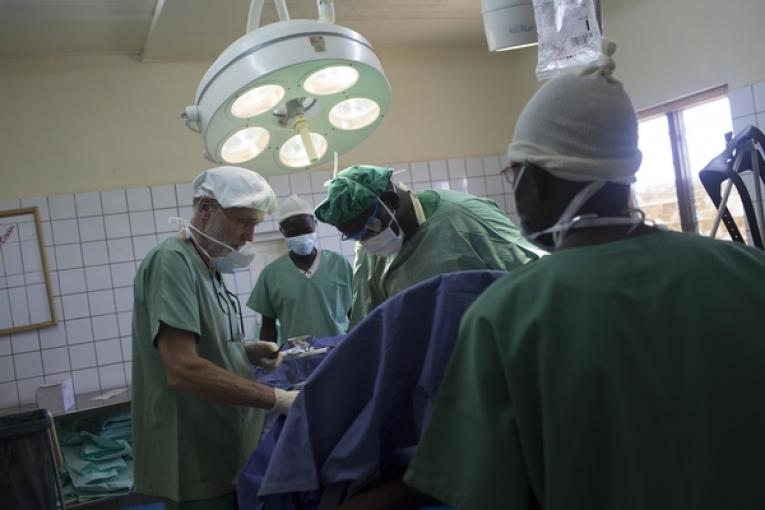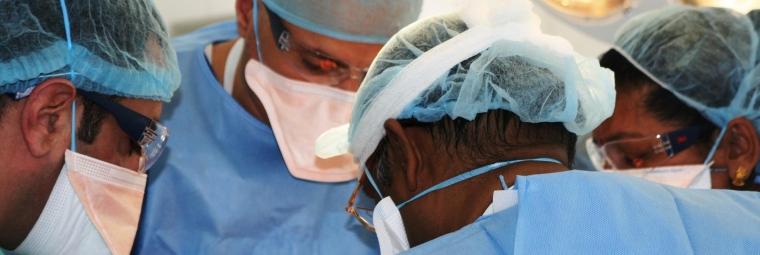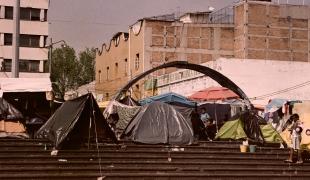Account of a surgeon returning from CAR: “MSF cared for anyone who was injured, regardless of which camp they were from”

Jacques is a surgeon. He has been on several missions with MSF, of which the last was in the Central African Republic (CAR). He tells us what went on there.
“My name is Jacques Khan, I’m 74 years old and I belong to the generation that founded MSF. I come from eastern France, and studied medicine and general surgery at university in Nancy and Besançon. I spent my career practising in a private clinic in Epinal, where I mainly performed digestive, vascular, thyroid and breast surgery.
I never had time to go on humanitarian missions while I was practising, but I got into it once I retired. I go on MSF missions at least twice a year: Côte d'Ivoire, Guinea, Chad, to the front line in Darfur, Liberia, Yemen, the Democratic Republic of the Congo (DRC), South Sudan, the Republic of the Congo, and four times to the Central African Republic (CAR)…
CAR was my last mission with MSF. I left last August. I knew that there had been a coup in March, but the area of Paoua – where MSF was based and where I needed to go – was peaceful and conflict-free, unlike the capital of Bangui where the Seleka rebel coalition was hunting down supporters of Bozizé, the ousted president. I wasn’t fazed at all: if there weren’t any problems in the countries in which we were working, MSF wouldn’t be there. If a surgeon goes off to operate on gunshot wounds, they must go where there are gunshot wounds to be found.
However, unlike during my previous missions in CAR, the safety regulations decided by MSF had changed: no more jogging, or walking the kilometre from the house to the hospital... I heard a few sporadic gunshots during the night when I first arrived, but nothing too worrying. As time went on, the shots became more frequent but – whilst not exactly convenient – the situation never became fraught or stressful. The fighting wasn’t constant, no heavy weapons were used, and we never needed to take refuge in the “safe room”, which was created to contain and protect teams in the event of danger.
Over the course of 17 working days in the operating theatre, I took care of 92 people. Some had been shot, but these were the minority. I performed caesareans and chest drain insertions, operated on hernias, wounds and bladder stones, reduced fractures, carried out debridements, and skin grafts on burn patients, incised abscesses, and applied and changed dressings under anaesthetic. I had to amputate the leg of a patient suffering from leprosy, who had fallen into a fire during an epileptic fit.
I also offered my advice on other cases, such as snake bites (2 to 3 cases arrive at the hospital in Paoua each week), bone-related issues, bowel obstructions and uterine fibroids. I also wrote to the surrounding health centres, providing advice by mail, as they had become impossible to access in person due to the unsafe conditions of the roads. The variety of illnesses that you encounter and the different activities that you undertake make a mission with MSF so rewarding professionally.
Some of the patients that came to us had been beaten (open fractures, testicular ruptures, etc.), whilst others had minor gunshot wounds. There were also some more severe cases of patients arriving who had suffered gunshot wounds. I installed seven external fixators for open fractures caused by bullets.
I remember one case in particular: a nomadic Fula pastor was defending himself from a Seleka soldier, who wanted to steal an ox from him. The Fula man injured the Seleka on his forehead, nose and cheek. The victim protected himself by holding his forearms over his head. As a result, all the muscles of his right forearm had been severed, and the same on the left, as well as part of the bone. I installed an external fixator on the left and repaired the tendons on the right. The surgeon who comes to Paoua after me will look at whether they can improve the functionality of the left arm. MSF cared for anyone who was injured, whether they were fighters or civilians, and regardless of which camp they were from. In the medical desert which is Paoua and the surrounding area, we provided care with humanity and skill. Honestly, I do wonder what would become of these patients if MSF were not there.




